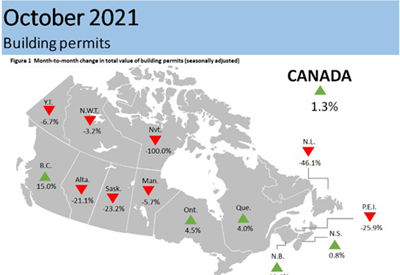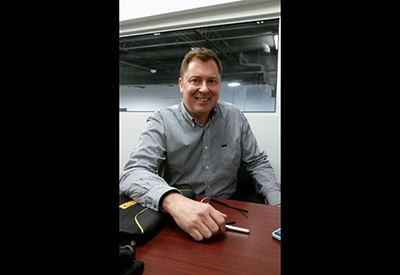After the Pandemic: Working Remotely Supply-Partner Implications

Mar 25, 2021
By Frank Hurtte
Earlier, we talked about the impact of distributors and their customers working remotely and how the changes impact distributors. In the eyes of many, the story would end here. However, a distributor is a middleman, the entity positioned between those consuming and those creating products. Distributors are a critical part of what could officially be called the supply chain.
A bit about the supply chain
A supply chain is a network between a company and its suppliers to produce and distribute a specific product to the final buyer. The companies providing raw materials to supply-partners are part of their supply chain. The distributor and supply-partners are steps in our customer’s supply chain.
If the distributor’s supply-partner experiences delivery issues and the distributor cannot deliver, the customer’s supply chain is impacted. If the distributor mishandles an order, once again the customer’s supply chain feels the pain.
Another portion of supply chain management involves forecasts and feedback from sellers in the field back to the factory making a product. To illustrate, let’s look at a product like a programmable controller (PLC). The product is produced using a wide range of “raw materials” ranging from printed circuit boards to electronic components, along with less high-tech things like plastic housings. If there is a shortage of any of these products, no PLCs can be made or shipped. If a company fails to predict dramatic upturns in the economy, they cannot anticipate the need for the raw materials going into their product. They suffer two ways:
• poor delivery to their customers
• higher costs for materials that must be purchased outside normal supply contracts
How does this impact the distributor/manufacturer relationship?
Returning to the topic at hand, we are talking about the impact of COVID-19 on people. Nearly all supply-partner field sales teams have been under very strict lockdowns; definitely more stringent than their distributor counterparts. Reports are these lockdowns will be in force for longer, perhaps significantly longer, than those of their distributor counterparts. Exacerbating this fact, most supply-partner salespeople lack the deep customer intimacy enjoyed by distributors. This translates into fewer customer interactions during the pandemic. Manufacturers are starving for the kind of information needed to build solid forecasts. Hence, our first point.
Distributors should expect questions and provide answers tied to opportunities being tracked with customers, the chances of success with those opportunities, and competitive activities focused on specific customers. Supply partner managers are leaning heavily on their teams to gather and report the information on a monthly (or more frequent) basis.
Many have cut their salesforce
Reports from the field indicate many supply-partners cut their salesforce during the pandemic. This points to manufacturer-based sellers being stretched even thinner than before. One could surmise distributors will be asked to provide even more opportunity/order tracking in the new normal.
Distributor salespeople, who are often tight-lipped about opportunities, must understand the reason for the calls and sometimes seemingly extraneous reporting required. Providing this information will serve to stress the importance of their distributor partners. Pushing further, distributor managers should have candid conversations with key supplier sales management to set ground rules on how the information will be used and eliminate potential outside interference from manufacturer salespeople who are not intimately involved in the process (and may not fully understand the customer dynamics).
Expect more responsibilities to fall on distributors
Historically, manufacturers typically find the need to reorganize their teams during or immediately following recessions and economic disruptions. The tea leaves point to a similar story as we move into the new normal. In fact, several manufacturers have already started laying out these changes.
These changes have fallen into three categories:
• elimination of field-based technical or support people. In order to maintain the same level of customer support, distributors will need to rely on product specialists and others to field customer application questions. While manufacturers will funnel calls to technical hotlines or customer support numbers, experience indicates customers demand faster response time than is often available through these channels.
• consolidation of inside sales help into regional or national centers. Once again looking at previous moves of this nature, distributors will need to work on developing advanced skills on the distributor portal to solve routine problems as well as develop tools for getting to the right person at the manufacturer’s regional center.
• larger territories for the remaining sellers. Supply-partner sellers will be pressed for time. In the crunch, they will be more hesitant to invest time in distributor training. Internal training will fall more heavily on the distributor’s team which has been a trend since the Recession of 2008-2009.
Expect more supplier people in flex worker status
Following the 2008-2009 recession, supplier outside sales teams were relocated to home office environments. The move created a few ripples among sellers with young families, but for the most part the transition was without distributor-related issues. A few distributors took advantage of the situation, however, to create even closer bonds with key suppliers. Here is a short list of steps taken:
• a special workspace for select suppliers in the distributor facility. Sometimes a person needs a workspace to maximize their time between customer visits. A dedicated workspace equipped with a computer connection, printer, fax machine, and scanner makes for better productivity than a coffee shop or working in the car. Providing this improves both the interactions between the distributor and the supplier as well as productivity.
• use of the distributor conference room for customer meetings. There will be times when there is a need for a working customer meeting. Rather than meet at the local Starbucks, the supplier salesperson is allowed the use of a conference room for such meetings. Since the meeting is being held at the distributor’s facility, the customer better appreciates the connection between the companies.
• use of storage for large demos and other equipment. Many supplier salespeople have a large assortment of demos and samples. Some report large sections of their garages full of this type of equipment. Assigning a spot for them to store at the distributor does two things. First, it encourages them to share with your team. Second, it provides easier access for joint calls and serving customers.
• access to a literature storage area. If suppliers have access to your literature area, they can be charged with maintaining an adequate supply and keeping things organized. This provides more and better-maintained tools for the distributor team too.
• Shipping/receiving of incoming literature, demos, and other things. Why not create a special account for supplier partner sales teams who need to ship equipment to customers or back to the factory? The extra productivity frees them from waiting in lines at the local UPS store.
A few parting thoughts
The areas covered in this article focused on the selling side of the business. There will be similar issues faced with marketing, accounting, and dozens of other interactions between distributors and their supply-partners. Time and readability hampered us from touching on each one; however, your comments and suggestions on the topic are always appreciated. If you have discovered something that works exceedingly well for your organization, please shoot me an email or just comment below.
Frank Hurtte is the Founding Partner of River Heights Consulting. He combines the battle scars of 28 years of front line “in the trenches” experience with over 13 years of service to knowledge-based distributors and their manufacturer partners. Email or call today to make these virus-driven times work for you: www.RiverHeightsConsulting.com.











